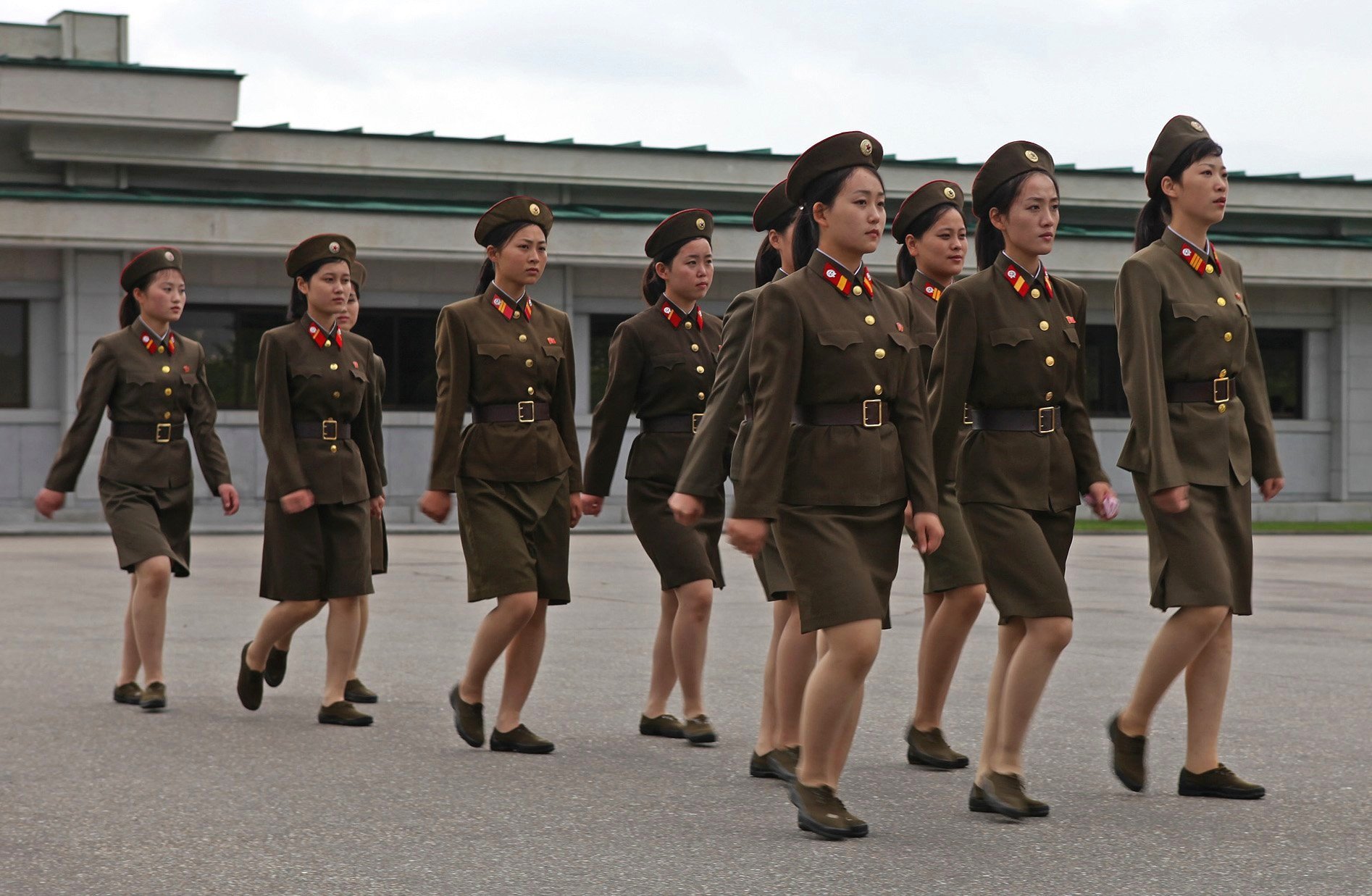To this day, North Korean women are subject to disadvantages in education and employment opportunities, with little protection against sexual assault and violence at work and home respectively, along with concerns of rape and mistreatment in detention. According to a report published by the Committee on the Elimination of Discrimination against Women in 2017, North Korea is far from providing adequate victim protection and support measures in this regard. For example, the 2012 revision of the Criminal Code lowered the penalties for some forms of rape, including rape of children, rape by a work supervisor and repeated rape. Since the penalty for rape is incommensurate with the crime per se, perpetrators are often left unpunished.
Unlike South Korea, which only requires male citizens between the age of 18 and 28 to perform compulsory military service, North Korea requires all North Korean women to serve a total of seven years in the military from the time they graduate school until the age of 23. Interestingly, it has been reported that thousands of young women were motivated to join the military by the thought of having a guaranteed meal each day, particularly following the famine in the 1990s.
As a traditionally male-dominated society, female soldiers in North Korea are subjected to repeated abuse, induced malnutrition, cruel punishment, sexual harassment and sexual assault. A former soldier, Jennifer Kim, estimated that 70 percent of female North Korean soldiers had been victims of sexual assault or sexual harassment in an interview conducted by The Committee for Human Rights in North Korea. As a victim herself, Kim testified that female soldiers had to endure "unspeakable” torture and collective punishments in the army. She described several occasions where women were forced to dip their hands in freezing water before being hung from an iron bar which froze on to their palms, causing the flesh to tear off when released. Kim also noted that women in the army had to reuse soggy footwraps and gauze used for dressing wounds as sanitry pads and recalled that during her four years of military service, she had only ever used four sanitary pads.
When Kim was 23 years old, a senior advisor called her to his office and she immediately knew what was going to happen – she was sexually assaulted that very day. Kim explained that she had no choice but to accept her fate. Had she refused his demands, she would not have been able to become a member of the Workers’ Party of Korea. “If I return to society without being able to join the party, I’m perceived as a problem child and I will be stigmatized for the rest of my life...[that] means you won’t be able to get a good job and it will be a problem when you try to marry. What could I have chosen?” Despite surviving on meager rations of three to four spoonfuls of corn a day and being so malnourished that her period only came once every four to six months, Kim became pregnant with her abuser’s child. When she informed him of her early signs of pregnancy, he simply ordered her to visit the military medical office the same night, where a military surgeon performed an abortion on her without anesthesia. Kim struggled to describe the pain she had been through and stated that “[because] of that experience, not only do I struggle mentally, but I’m also not able to have children...[so] even now, it’s difficult for me to have a good marriage. The shame I felt back then still haunts me and will continue to do so”.
The term “Pleasure Squad” made global headlines and exposed that groups of young virgins are selected for the North Korean leader and other high-ranking officials’ sexual entertainment (called the Kippujo which is often translated as the “Pleasure Squad”). The executive director of the Committee for Human Rights in North Korea, Greg Scarlatoiu, stated it is unsurprising that “[the] abuse the nation’s daughters in uniform suffer at the hands of the regime’s henchmen” and that these deplorable acts “[reflect] the deeply-embedded and incurable pervertedness and corruption of the party and the entire top leadership, all the way up to the top of the chain of command.” Women in North Korea, including female soldiers, have little to no protection from this system.




